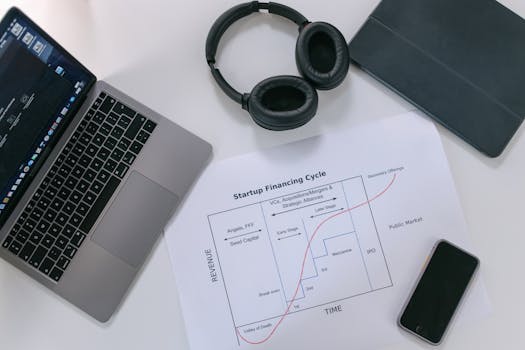Professional development
Transform Your Career: The Power of Mindfulness and Meditation
Explore the transformative impact of mindfulness and meditation on career growth and workplace well-being, fostering focus, resilience, and emotional intelligence.
Advertisement
Mindfulness and meditation have transformed the personal and professional landscapes in recent years. As employees seek better balance and fulfillment, many are turning to these practices to enhance their careers. When incorporated into daily routines, mindfulness and meditation lead to heightened awareness, improved focus, and overall well-being.
Adopting mindfulness and meditation can indeed be a game-changer for professionals across various industries. Not only do these practices promote emotional health, but they also directly influence work performance and relationships within teams. Consequently, businesses that prioritize these courses can expect a more engaged workforce.
This article explores how mindfulness and meditation courses positively impact careers, highlighting their benefits, practices, and the organizational cultures they can nurture. By examining various aspects, professionals can gain insights into these valuable tools for growth.
Understanding Mindfulness and Meditation
Mindfulness refers to the practice of being present and fully engaged in the moment without judgment. This awareness fosters a deeper connection to thoughts and feelings. On the other hand, meditation is a technique that encourages focus and reflection.
Both practices cultivate a state of calm that can reduce stress and anxiety. By developing mindfulness, professionals can enhance their emotional intelligence and decision-making capabilities in the workplace. Understanding these concepts is essential for effective implementation.
Moreover, mindfulness promotes the acceptance of one’s thoughts and emotions, which helps in developing resilience. This adaptability is crucial in today’s dynamic work environment, where challenges are frequent and unexpected.
Furthermore, meditation can boost cognitive functions, leading to improved concentration and memory retention. As a result, individuals who engage in these practices report enhanced creativity and problem-solving abilities.
Ultimately, the journey toward mindfulness and meditation is personal yet profoundly impactful for career growth. The next sections delve deeper into the numerous benefits these practices provide for professionals.
The Benefits of Mindfulness in the Workplace
The benefits of mindfulness extend far beyond personal well-being. For professionals, these advantages include improved focus, heightened creativity, and better interpersonal relationships. Consequently, organizations that encourage mindfulness enjoy increased productivity.
Research indicates that practicing mindfulness at work can lead to reduced feelings of stress. Employees who manage stress effectively are typically more engaged and motivated, contributing positively to team environments.
Moreover, mindfulness can improve communication skills, allowing individuals to express thoughts and emotions clearly. This clarity fosters understanding and collaboration among team members, enhancing overall project efficiency.
Additionally, individuals practicing mindfulness often report greater emotional resilience. Such resilience helps employees navigate challenges with a calm and collected approach, minimizing workplace conflicts.
Overall, integrating mindfulness into the workplace can create a more harmonious and productive environment, benefiting both employees and employers alike.
Enhancing Focus Through Meditation
Meditation serves as a powerful tool for enhancing focus and concentration. Regular practice trains the mind to remain present, which is crucial in a distraction-laden workspace. Consequently, individuals experience improved task completion and performance.
Individuals who meditate frequently can cultivate a greater ability to concentrate on tasks at hand. This enhanced focus enables employees to tackle challenges more efficiently and with greater clarity.
Furthermore, meditation can help reduce mental clutter. A clearer mind allows for better decision-making, which leads to increased confidence in various professional situations.
Additionally, specific meditation techniques, such as mindfulness meditation, encourage awareness of thoughts. This awareness helps professionals redirect their attention when distractions arise, maintaining productivity.
Thus, incorporating meditation into daily routines can significantly impact one’s focus, resulting in improved work outcomes and career satisfaction.
Building Emotional Intelligence
Emotional intelligence (EI) is fundamental for success in the workplace. Mindfulness and meditation enhance these skills, enabling individuals to better understand and manage emotions. As a result, professionals develop stronger relationships with colleagues.
Practicing mindfulness promotes self-awareness, a vital component of emotional intelligence. By recognizing their emotions, individuals can respond more effectively to others, fostering a collaborative environment.
Moreover, emotions influence decision-making, and those with high EI are better equipped to navigate complex social situations within the workplace. This adaptability is a crucial asset in professional settings.
Additionally, mindfulness encourages empathy. Professionals who practice mindfulness are more likely to understand the perspectives of their colleagues, which enhances teamwork and cooperation.
Overall, building emotional intelligence through mindfulness and meditation creates a more empathetic and cohesive workplace, which positively impacts career advancement.
Increasing Resilience and Stress Management
Resilience is the ability to cope with challenges and bounce back from adversity. Mindfulness and meditation help cultivate this crucial trait, benefiting professionals in a variety of occupations. Enhanced resilience leads to better stress management.
When employees experience stress, mindfulness practices provide tools to manage and mitigate its effects. Techniques such as breathing exercises can create a sense of calm and control, which is essential in high-pressure situations.
Moreover, resilience derived from meditation helps professionals maintain focus and maintain productivity amid challenges. This capability allows for the effective management of deadlines and responsibilities.
Additionally, employees equipped with resilience are less likely to experience burnout, which has become a prevalent issue in many industries. A healthy work-life balance becomes more achievable through these practices.
In summary, mindfulness and meditation foster resilience and stress management, yielding long-term benefits both personally and professionally.
Fostering a Positive Work Environment
A positive work environment is crucial for employee satisfaction and retention. Companies embracing mindfulness and meditation create a culture that promotes well-being and open communication. This culture enhances employee morale and productivity.
Organizations that host mindfulness and meditation workshops foster team bonding. Shared experiences in mindfulness practices build stronger relationships among colleagues, leading to increased collaboration.
Additionally, a workplace culture that prioritizes well-being reduces employee turnover. When employees feel valued and supported, they are more likely to remain in their positions, benefiting the entire organization.
Moreover, fostering a positive environment encourages creativity and innovation. Teams that feel secure and connected are more likely to share ideas and take calculated risks.
In conclusion, creating a compassionate and mindful workplace culture yields numerous benefits, resulting in a supportive atmosphere that enhances overall productivity.
Practical Steps to Incorporate Mindfulness and Meditation
Integrating mindfulness and meditation into daily routines can be straightforward. Here are some practical steps professionals can take to incorporate these practices. Each step offers valuable guidance for creating a more mindful work experience.
- Set aside dedicated time daily for mindfulness or meditation practice.
- Start with short sessions and gradually increase their duration.
- Utilize apps or online resources for guided meditation.
- Create a peaceful environment, free from distractions.
- Involve colleagues to encourage a collective mindfulness practice.
Establishing a routine is essential for success. Consistency helps reinforce the habit of mindfulness, leading to better integration into daily life.
Employees are encouraged to explore various meditation techniques to discover what resonates. Practices such as breathing exercises, loving-kindness meditation, or yoga can all contribute positively to overall well-being.
Employers can facilitate mindfulness workshops and training sessions to support employees effectively. By providing resources, organizations demonstrate their commitment to employee wellness.
Ultimately, simplicity and consistency are key. Small steps can lead to significant positive changes in professional life.
Conclusion
In conclusion, mindfulness and meditation courses present numerous benefits that positively impact careers. From enhanced focus and emotional intelligence to increased resilience and improved work environments, these practices contribute significantly to professional success.
As workplaces evolve, integrating mindfulness and meditation fosters personal growth and enhances organizational culture. By prioritizing these practices, both employees and organizations can thrive.
Ultimately, embracing mindfulness and meditation can lead to a more balanced, engaged, and successful workforce, paving the way for a brighter professional future.





